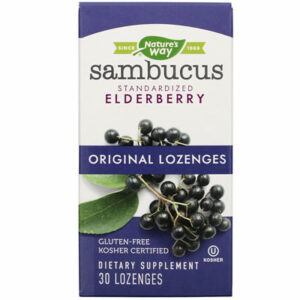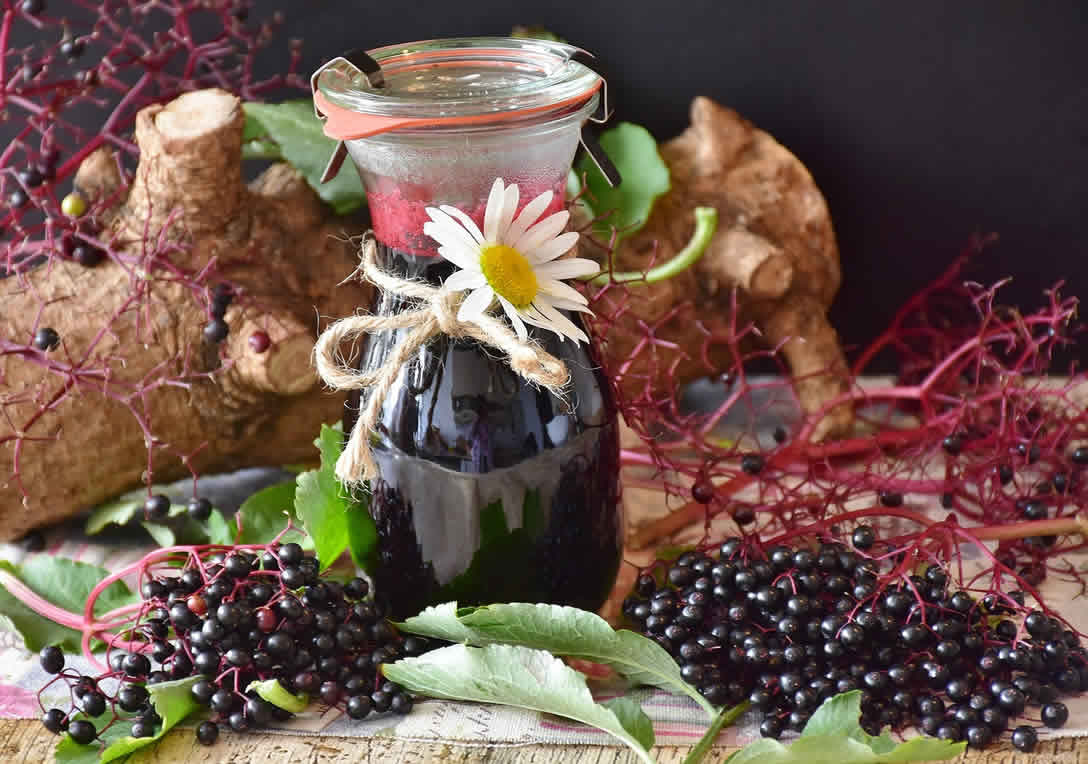Elderberry is a deciduous shrub belonging to the family Loniceraceae. The fruit is rich in anthocyanins, flavonoids (such as quercetin, rutin), and polyphenols. Do you know the benefits of elderberry supplements?
There are many varieties of elderberry. Western black elderberry is the most common, including leaves, bark, flowers, and berries, which can be used as medicine. Among them, elderberry is the most commonly studied target.
In 400 BC, the famous Greek doctor and father of medicine: Hippocrates once gave elderberry the name of natural medicine box, which means it is the greatest healing plant in nature.
Prior to the invention of antibiotics, elderberry was one of the mainstream ingredients in the prescriptions of the medical staff at that time. It has been made into healthy foods (juices and lozenges) today. It is considered to have potential effects on colds, flu, and viral infections, but it is related to human There is still not much evidence.
Table of Contents
- What are the benefits of elderberry?
- 1. Elderberry benefits upper respiratory symptoms (cold and flu)
- 2. Elderberry benefits knee osteoarthritis
- 3. Elderberry beneficial Cryptosporidium dermatitis
- 4. Elderberry benefits cardiovascular disease
- 5. Elderberry is beneficial for osteoporosis (caused by diabetes)
- 6. Elderberry beneficial cholesterol management
- Are there any side effects of elderberry?
- Safety precautions
- Where to buy elderberry recommended by most people?
What are the benefits of elderberry?
1. Elderberry benefits upper respiratory symptoms (cold and flu)
Upper respiratory tract infections can be defined as the self-limiting irritation and swelling of the upper respiratory tract (nose, sinuses, pharynx, larynx, and airway), with the common cold and flu being the most common.
The main symptoms are cough, sore throat, runny nose, discomfort, nasal congestion, headache, fever, and the most common pathogenic factors for viral infections, such as rhinovirus, influenza virus, adenovirus, enterovirus, and respiratory syncytial virus.
Except for influenza, there are relatively few complications of upper respiratory tract infection. Complications of influenza infection include primary influenza virus pneumonia, secondary bacterial pneumonia, sinusitis, otitis media, and myocarditis.
A meta-analysis of literature (including 4 randomized controlled clinical trials, a total of 180 patients with upper respiratory tract infection) pointed out that supplementation and elderberry extract can significantly reduce the duration of upper respiratory tract symptoms.
In addition, moderator analysis found that the flu vaccination status did not change the effect of elderberry supplements, and the improvement (symptom duration and severity) was most pronounced with influenza (compared to the common cold)
*Conclusion: Supplementing standardized elderberry extract when upper respiratory tract symptoms appear may help reduce the duration and severity of symptoms, but is limited by the small sample size, and more studies are needed to corroborate.
2. Elderberry benefits knee osteoarthritis
Osteoarthritis also is known as degenerative joint disease, primary osteoarthritis, abrasion arthritis, or age-related arthritis, is the leading cause of disability worldwide.
Various factors including family history, age, obesity, diabetes, synovitis, systemic inflammatory mediators, innate immunity, lower limb alignment, joint dysplasia, trauma, metabolic syndrome, and inflammation are all related to the knee Osteoarthritis is involved.
A randomized, double-blind, active-controlled clinical trial (for 4 weeks, 79 patients with osteoarthritis of the knee) pointed out that compared to the use of analgesic gel diclofenac, topical elderberry gel (Sambucus ebulus) L., the extraction part is leaves has better symptom improvement effect (measured by WOMAC pain score, total WOMAC score and VAS score for pain).
*Conclusion: The topical elderberry extract gel may be helpful for knee osteoarthritis, but it is limited to a small number of samples and more research is still needed to further verify.
3. Elderberry beneficial Cryptosporidium dermatitis
Paederus dermatitis is an acute irritant contact dermatitis caused by Cryptococcin released when Cryptosporidium is crushed on the skin.
Patients often experience a sudden burning sensation and skin pain, accompanied by erythema, pustules, and vesicles. Pigmentation is common sequelae that may last for a month, and extensive ulcers may also occur.
This vesicular dermatitis may be confused with viral and bacterial skin diseases such as bullous pustules, herpes simplex, and herpes zoster.
A randomized, double-blind, prospective, placebo-controlled clinical trial (targeting 62 patients with Cryptosporidium dermatitis), group A using topical palemolin (5% elderberry alcohol soak) and hydrocortisone ointment, group B Give 70% ethanol topical solution and hydrocortisone ointment.
It was found that Group A could more effectively control burning, pain, inflammation, dry wounds, infections, and accelerated healing, and 93.9% of Group A patients completely eliminated the problems related to the lesion within 48 hours after treatment (Group B: 65.4 %).
*Conclusion: The elderberry extract soak solution may be positive for the treatment of Cryptosporidium dermatitis, but it is limited to a small number of samples and more research is still needed to further verify.
4. Elderberry benefits cardiovascular disease
Cardiovascular diseases are currently the greatest threat to human health, but fortunately, there are 9 potential risk factors that can be changed, including blood lipids, smoking, diabetes, high blood pressure, abdominal obesity, psychological factors, fruits/ Vegetable intake, exercise, and drinking.
By 2020, cardiovascular disease will surpass infectious diseases and become the leading cause of the global health burden, accounting for about 56% of the total attack rate and 73% of the total mortality rate.
A double-blind controlled study pointed out (12 weeks, 52 postmenopausal women), although taking elderberry extract is safe, the cardiovascular protection effect is still limited, related risk markers such as inflammation index, vascular reactivity, No significant changes in blood lipids.
5. Elderberry is beneficial for osteoporosis (caused by diabetes)
Osteoporosis is one of the most common bone metabolic diseases, which is mainly characterized by decreased bone density and increased bone porosity, leading to fractures, usually caused by postmenopausal estrogen deficiency and age-related bone loss. In addition, diabetes is also a common predisposing factor.
It is clinically found that about 1/2 to 2/3 diabetic patients have weakened bone strength, and 1/3 are diagnosed with osteoporosis.
An animal study pointed out that (the subject is an experimental rat induced by injection of streptozotocin/streptozotocin), elderberry extract may have the effect of slowing bone loss and improving osteoporosis, but due to lack of relevant human research, further confirmation is needed.
6. Elderberry beneficial cholesterol management
Cholesterol is a waxy steroid molecule, which has the effects of maintaining the fluidity and insulation of cell membranes and is indispensable for the normal function of cells.
In addition, cholesterol is also a precursor of hormones. It can produce sex hormones, mineral corticosteroids (to maintain water and electrolyte balance), and glucocorticoids (to control protein and carbohydrate metabolism, immunosuppression, and inflammatory reactions). It is to maintain normal metabolism Functionally indispensable substance.
A double-blind controlled study pointed out (2 weeks, the subject was 34 healthy subjects), compared with placebo, low-dose elderberry extract has slightly reduced blood lipid (cholesterol) effect.
Are there any side effects of elderberry?
Qualified elderberry extract on the market is very safe for short-term use at the recommended dosage of the product, and no significant side effects have been found.
Unripe, uncooked fruits or other parts (flower roots, stems, and leaves) contain cyanide or cyanogenic glycosides, which may cause nausea, stomach pain, numbness, disturbance of consciousness, weakness, vomiting, or severeness if swallowed Adverse reactions such as diarrhea.
Safety Precautions
1. Do not use for pregnant women, nursing mothers, and children (because the relevant safety is unknown).
2. Do not use if the liver and kidney function is poor (because the relevant safety is unknown).
3. Some people are allergic to elderberry. If you experience allergies after eating (such as the runny nose, itchy or red eyes, difficulty breathing), please stop using it immediately and seek medical treatment.
4. Patients with autoimmune diseases (rheumatoid arthritis, lupus erythematosus, multiple sclerosis) or those who have undergone organ transplantation should not take it (as it may stimulate the immune system).
5. Do not use in combination with diuretics, diabetes drugs, chemotherapy drugs, laxatives, and immunosuppressive drugs, which may interfere with the action of the drugs and cause unknown risks.
Where to buy elderberry recommended by most people?
In recent years, food safety problems in various countries have exploded, and it is not healthy but black-hearted products that everyone spends on. Therefore, European and American products with relatively strict quality control have become popular products.
And iHerb.com is a large-scale medical cosmetics e-commerce company in the United States. It has a high satisfaction rate of 97% in the evaluation of Google customers. It provides global home delivery so that you can buy it without risking buying fakes through purchasing high-quality health products.
